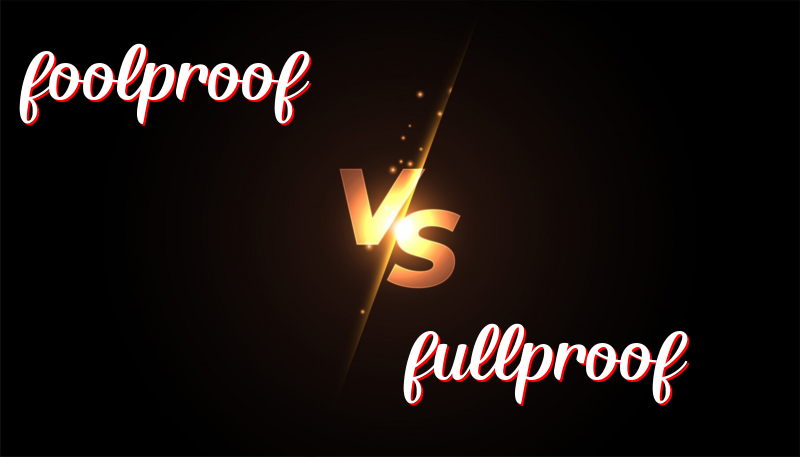Foolproof vs Fullproof Understanding the Difference
Foolproof vs Fullproof
There are two words that sound the same: “foolproof” and “fullproof”. They are different words with different meanings.
History
“Foolproof” comes from the idea of making something so easy that even a fool cannot mess it up. It started being used in the 1900s.
“Fullproof” is not a real word in English. People sometimes write “fullproof” by mistake when they mean “foolproof”.
How to Use Them
Foolproof
“Foolproof” means something is very safe and easy to use. It cannot go wrong. For example, if a toy is foolproof, kids can play with it without breaking it.
- This toy is foolproof. Any child can use it.
- The recipe is foolproof; anyone can cook it.
- The new machine is foolproof and very safe.
- I need a foolproof plan so nothing bad happens.
- With foolproof instructions, you can fix it yourself.
Fullproof
“Fullproof” is not a real word. Always use “foolproof” instead. If you see “fullproof”, it is a mistake.
Here are the corrected sentences:
- This toy is foolproof, not fullproof.
- The recipe is foolproof, not fullproof.
- The new machine is foolproof and very safe, not fullproof.
- I need a foolproof plan, not fullproof.
- With foolproof instructions, you can fix it yourself, not fullproof.
Trick to Remember the Difference
Remember: If something is easy and cannot go wrong, it is “foolproof”. Do not use “fullproof”.
Summary
“Foolproof” means very safe and easy. It is the correct word to use. “Fullproof” is a mistake. Always use “foolproof”.
Example Sentences:
Foolproof
- The teacher made a foolproof plan for the trip.
- The game is designed to be foolproof.
- This lock is foolproof and very secure.
- The instructions are foolproof, so anyone can follow them.
- Her plan to win the game was foolproof.
Fullproof (Incorrect)
- He said the plan was fullproof, but he meant foolproof.
- Write foolproof, not fullproof in your notes.
- They often confuse fullproof with foolproof.
- The book had an error, saying fullproof instead of foolproof.
- I corrected his use of fullproof to foolproof.
Now you know. Always use “foolproof”. “Fullproof” is not a real word. Remember that, and you won’t make a mistake.

Leave a Reply
You must be logged in to post a comment.